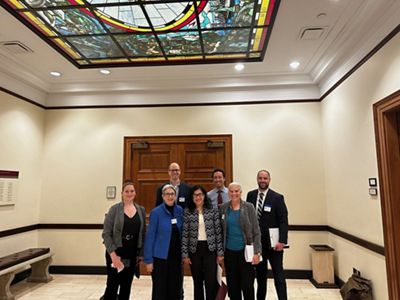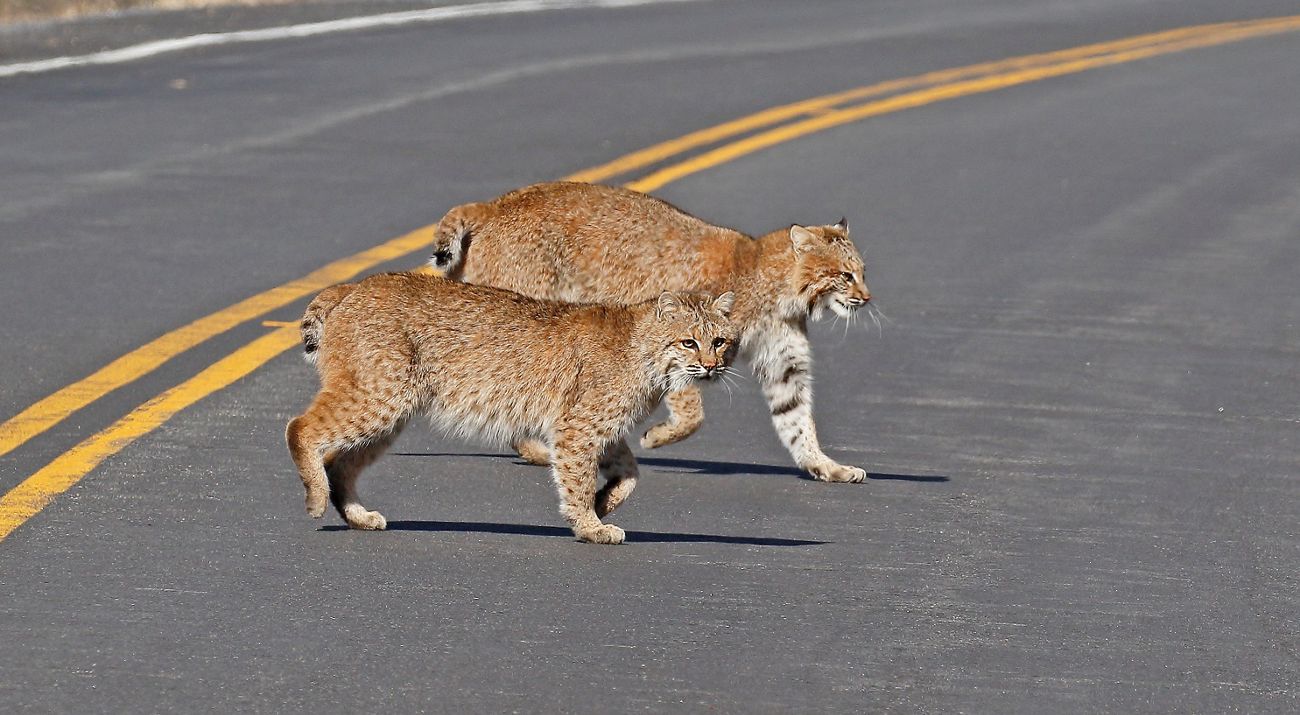Critical Wildlife Corridor Legislation Passed Unanimously by New Jersey Senate
Bill Passes Out of Committee Unanimously with Bipartisan Support
Media Contacts
-
Mary Conti
The Nature Conservancy
Mobile: (732) 804-1928
Email: mconti@tnc.org
The Nature Conservancy in New Jersey is celebrating the unanimous passage by the New Jersey State Senate of Bill S3618, legislation to create a comprehensive Wildlife Corridor Action Plan. The bill, which fosters collaboration between New Jersey’s Department of Transportation and Department of Environmental Protection to design and implement strategies that protect and improve areas of critical wildlife movement across the state, was passed out of committee unanimously with bipartisan support.
Quote: Phil Echevarria
The people of New Jersey care about nature, showing unwavering support for open space that has resulted in a third of the state’s natural areas being protected to date.
Habitat fragmentation, urban expansion and a dense network of roads make survival increasingly more challenging for wild animals in New Jersey, impeding their movement and disrupting the natural resources they rely upon even as they face mounting climate stressors. At the same time, automobile-wildlife strikes cost New Jersey an estimated $150,000,000 every year.
The proposed legislation seeks to ensure that New Jersey’s species, from the widest-ranging bobcat to the tiniest salamander, have safe pathways to migrate, forage and reproduce, and that New Jersey drivers have a reduced chance of hitting a deer on their way home from work. Among its provisions, it calls upon the state agencies to identify areas of high wildlife movement (and mortality) and to improve conditions in those locations with culverts, overpasses or other projects that make passage less treacherous. It also calls for such projects to be routinely considered statewide during roadway construction and repair.

“The people of New Jersey care about nature, showing unwavering support for open space that as resulted in a third of the state’s natural areas being protected to date,” said Phil Echevarria, New Jersey Director of Government Relations at The Nature Conservancy. “By passing this bill, we commit long-term to improving the connectivity of those precious natural areas, making our environment safer and more welcoming for all residents and visitors, both human and wild.”
Studies show that wildlife corridors are vital for a diversity of plants and animals to thrive. They reduce human-wildlife conflicts, enhance the resilience of natural systems in the face of environmental stressors and give people green space to enjoy the outdoors. The proposed S3618 legislation creates a Wildlife Corridor Action Plan that ensures all those benefits for New Jersey.
“The NJ Sierra Club strongly supports bill S3618 and the creation of a State Wildlife Corridor Action Plan. Wildlife corridors are essential to keeping wildlife out of harm’s way and out of the roadway for New Jersey residents. They provide critical connectivity to and between habitats, which in New Jersey is increasingly difficult given our dense population and urban infrastructure,” said Taylor McFarland, NJ Sierra Club Conservation Program Manager. “New Jersey animals have a right to roam. On top of this, the impacts of climate change are displacing wildlife and forcing them to move. Wildlife corridors would allow them to do so safely and create semi-natural infrastructure for species to connect to habitats across our state which is fragmented by over development.”
Alex Ireland, President & CEO, New Jersey Audubon, adds, “Wildlife corridors are critical to the protection of people and animals. This is especially true in the rich and complex landscape of New Jersey, where dense populations of people and wildlife share limited space. The need for safe, well-planned wildlife corridors will only increase into the future. Acting now will benefit biodiversity while creating safer conditions for people who travel our roads every day.”
The Nature Conservancy is a global conservation organization dedicated to conserving the lands and waters on which all life depends. Guided by science, we create innovative, on-the-ground solutions to our world’s toughest challenges so that nature and people can thrive together. We are tackling climate change, conserving lands, waters and oceans at an unprecedented scale, providing food and water sustainably and helping make cities more resilient. The Nature Conservancy is working to make a lasting difference around the world in 81 countries and territories (40 by direct conservation impact and 41 through partners) through a collaborative approach that engages local communities, governments, the private sector, and other partners. To learn more, visit nature.org or follow @nature_press on X.
